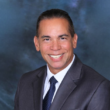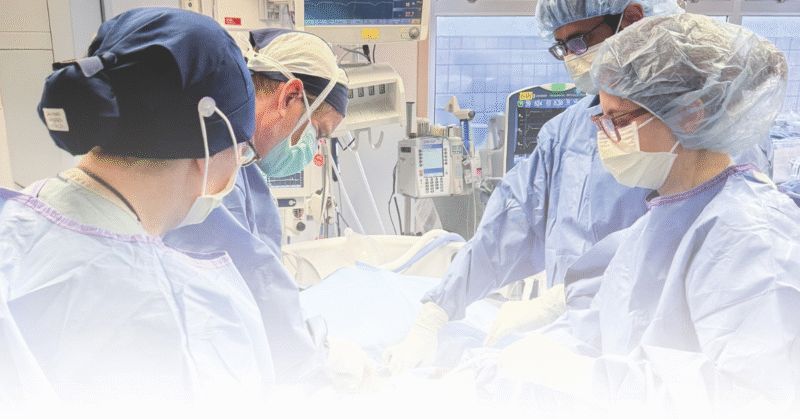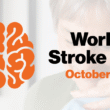It was early February when Nathaniel Williams was driving to work in New Mexico a few miles from El Paso. Unsuspecting, the 26-year-old Dallas native was hit head-on by a semi-truck, resulting in life-threatening injuries that required him to be airlifted to University Medical Center of El Paso (UMC), the region’s only Level 1 Trauma Center.
As he underwent multiple surgeries at UMC, Williams’ family hastily traveled from Dallas. It was during one of those surgeries that Williams began having trouble breathing, which resulted in immediate intubation. Although a temporary solution, intubation was not enough for Williams, whose oxygen level began to decline.
In that moment, UMC’s team of specialists made the decision to use UMC’s newly launched extracorporeal membrane oxygenation (ECMO) machine on Williams, saving his life.
“It really was life or death for him,” said Amber Williams, Williams’ mother. “He would have been dead if there was no ECMO [at UMC],” she added as she wiped a tear away. “That machine did all of the breathing for him because he couldn’t breathe.”
ECMO is a form of life support that allows the lungs and heart to rest by providing oxygen and removing carbon dioxide from the blood. It is commonly used for patients with severe respiratory or cardiac failure due to conditions like pneumonia, trauma, or heart disease.
UMC is the region’s first and only hospital to offer ECMO, and Williams was the first patient at UMC to get a second chance at life with the system.
Williams’ mother said she didn’t think twice about having her son be the first patient at UMC to try the ECMO circuit because she was reassured by staff of their preparedness.
“Everybody who worked on ECMO was so amazing; what could have been a really horrible experience turned into a really great experience for us,” said Williams. “The staff was great because they talked to me about it and then they said if something happened to this machine, they had a backup machine right there.”
UMC Associate Trauma Medical Director and Associate Professor of Surgery at Texas Tech University Health Science Center El Paso, Dr. Leo Mercer, is the lead physician on the UMC ECMO team. He said the biggest challenge to bringing the program to the region was not getting the equipment, but having the team, organization, training, and procedures in place to get a patient on the ECMO circuit in a moment’s notice.
“As I describe, it takes a village in order to get it done, and to get it done safely,” said Dr. Mercer.
Currently, UMC has over 20 nurses and respiratory therapists trained on ECMO to ensure the highest level of preparedness for situations like Williams’.
“We created a hybrid team, so we get to use our committed resources, people that by virtue of having been at UMC for many years have a fair amount of training to begin with,” explained Dr. Mercer. “[The team] is committed to the ECMO program here just like they are committed to the patients in the ICU and the patients that need respiratory therapy.”
Thinking back to Williams’ case, Dr. Mercer said he was proud of the life-saving work done by the staff at UMC. He recalled their swift mobilization in a scenario that was a first for them.
“[The patient] would not have survived if we had not put him on an ECMO circuit at the time that we did; he simply wouldn’t have,” said Mercer.
Williams turned 27 years old while at UMC and was able to return home to Dallas with his family shortly after where he began his rehabilitation journey, learning to move and walk again.
What was projected to treat 12 patients in its first year quickly surpassed expectations and has saved the life of 24 patients and counting.
Prior to the introduction of UMC’s ECMO program, patients who could not be effectively treated using traditional ventilation would be transported to Brooke Army Medical Center in San Antonio for treatment, which would take on average five days to coordinate due to clearance needed from military officials.
In May, UMC began accepting transferred patients from other hospitals for ECMO treatment. Now nearing the end of the program’s first year, the need for the program in our community is evidently clear. UMC is currently in the process of integrating a specialized ECMO ambulance to canulate critical patients at other hospitals that do not offer this life-saving technology.
Stay connected with UMC El Paso’s events, initiatives, and community recognitions. Visit umcelpaso.org to learn more, register for upcoming events, or celebrate our latest achievements.










